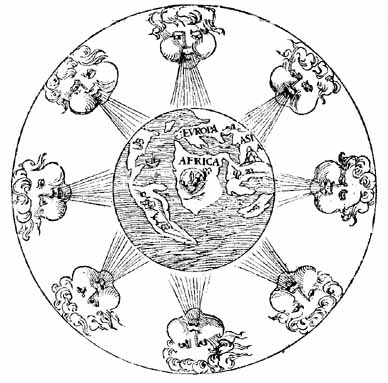The Twelfth Ischia Summer School on the History of the Life Science ‘Villa Dohrn’, Ischia, Italy, 26 June – 3 July 2011
Call for applications
Biology and the Publlc:
Participation and Exclusion from the Renaissance to the Present Day
The Twelfth Ischia Summer School on the History of the Life Science
‘Villa Dohrn’, Ischia, Italy, 26 June – 3 July 2011
Directors: Janet Browne (Harvard), Christiane Groeben (Stazione
Zoologica Anton Dohrn, Naples), Nick Hopwood (Cambridge), Hans-Jörg
Rheinberger (Berlin)
Funding: Wellcome Trust, Max Planck Institute for the History of
Science, Stazione Zoologica Anton Dohrn
Faculty and programme
The organizers will introduce the theme and lead discussions. Each
faculty member will give a talk of up to 30 minutes, with equal time
for discussion, and organize a one-hour seminar discussion. This will
provide the lecture experience that some students particularly value
plus plenty of opportunities for interaction and participation, which
will be enhanced by student presentations and general discussions.
English is the working language and readings will be circulated in
advance.
Antonio Barrera (Colgate University, Hamilton, NY, USA)
Lecture: Indian knowledge, European experience and the emergence of
empiricism in early modern natural history
Seminar: Participation and exclusion: Indians and Europeans in the
making of early modern natural history
Mary Terrall (University of California, Los Angeles, USA)
Lecture: Naturalists in the public eye: audiences for natural history
in the French Enlightenment
Seminar: Recruiting observers: Reaumur’s textual strategies
Anne Secord (University of Cambridge, UK)
Lecture: Private collections and the public good: British botany in
the early nineteenth century
Seminar: Seeing the field: observational perspectives and practices,
1789–1830
Jim Secord (University of Cambridge, UK)
Seminar: Evolution for the people: audience and genre in the
nineteenth century
Lecture: Global communication and the making of Darwinism
Christina Wessely (University of Vienna, Austria)
Lecture: Artificial animals: natural history as mass entertainment
Seminar: Scientific knowledge and middle-class life in German zoos
Philipp Sarasin (University of Zürich, Switzerland)
Lecture: What to do with ‘popular science’? The case of bacteriology
Seminar: Living with the bomb: the MAD culture of the Cold War
Tim Boon (Science Museum, London, UK)
Lecture: ‘Secrets of life’: who made biology films in interwar
Britain, and for whom?
Seminar: History of biology in museums today: how should we build lay
agency in?
Ilana Löwy (CERMES, Paris, France)
Lecture: Cancer, precancer and their publics
Seminar: Cancer organizations and cancer screening
Carlos López Beltrán (UNAM, Mexico City, Mexico)
Lecture: From Political icon to scientic object: the Mexican mestizo
and genomic research
Seminar: Genomics and identity politics in Latin America
Massimiano Bucchi (University of Trento, Italy)
Lecture: Public participation in the biomedical sciences
Seminar: Decision-making about biomedical science
Staffan Müller-Wille (University of Exeter, UK)
Commentary: The role of the public in making ‘biology’
In addition, there will be a welcoming reception and other social
events, and we will take one day for a trip to Naples to visit the
main Zoological Station, a major international institution of biology
since 1872, to see its historical collections (a great specialist
library for history of biology and important archive), laboratories
and famous aquarium.
All participants should be present for the full week in order to
facilitate discussions. 26 June and 3 July are travelling days, with
no lectures or seminars scheduled.
Cost
There is a charge for students of 300 Euros each. This will cover
hotel accommodation and all meals, but students will need to pay for
their own travel to Ischia.
The directors will consider requests to waive the fee from qualified
students, especially from developing countries, who are unable to
raise the money themselves and whose institutions cannot provide it.
These must be supported by a detailed financial statement and a
letter from the applicant’s head of institution.
Timetable
31 January 2011 Deadline for applications
March 2011 Students to be notified of
outcome
31 May 2011 Registration fees and/or
registration forms due
Procedure
Applications are to be sent by e-mail to the following address:
bvmallinckrodt@mpiwg-berlin.mpg.de or by mail to:
Birgitta v. Mallinckrodt
Max Planck Institute for the History of Science
Boltzmannstr. 22
D-14195 Berlin
Germany
Applications should include:
1. a brief cv,
2. a statement specifying academic experience and interest in the
course topic (max. 300 words),
3. a letter of recommendation.
Applications are invited for this week-long summer school, which
provides advanced training in history of the life sciences through
lectures and seminars in a historically rich and naturally beautiful
setting. The theme for 2011 is Biology and the Publlc: Participation
and Exclusion from the Renaissance to the Present Day. The faculty
are Antonio Barrera, Mary Terrall, Anne Secord, Jim Secord, Christina
Wessely, Philipp Sarasin, Tim Boon, Ilana Löwy, Carlos López Beltrán,
Massimiano Bucchi and Staffan Müller-Wille

